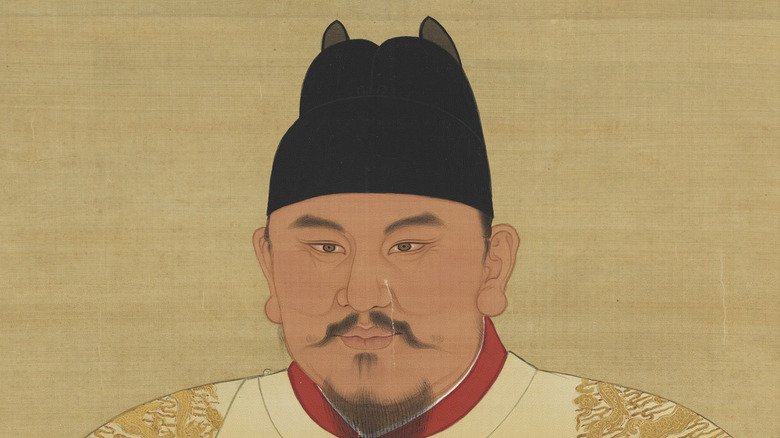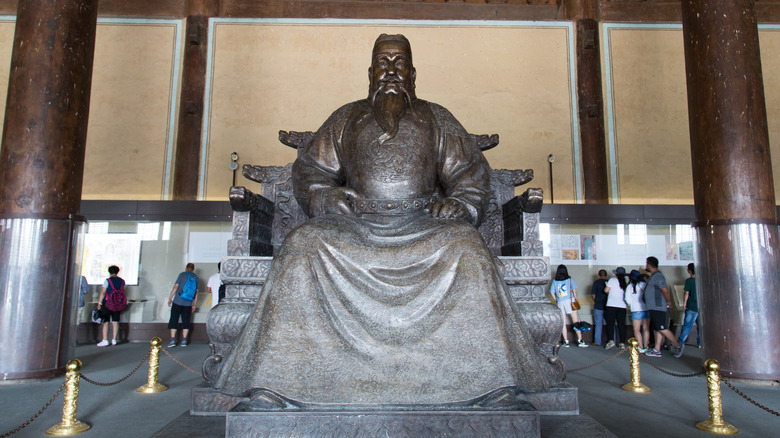Why Zhu Yuanzhang Is One Of History's Most Successful Rebels
Zhu Yuanzhang, the Hongwu Emperor, founded the Ming Dynasty in the 14th century that would go on to rule Medieval China for three centuries along with widespread improvements to his empire's military, administrative, and education systems (via Britannica). Yet, despite being one of the most prestigious Chinese emperors, Zhu grew from humble beginnings and only came into power through leading a rebellion. The influence of his dynasty makes his rebellion one of the most successful in world history.
Zhu was born in 1328, as the youngest child of a poor peasant family in the Yuan era. According to China Highlights, many of Yuanzhang's siblings were given away. Other family members were taken by flood and disease while the future emperor was a teenager. He fled to a Buddhist monastery and begged for food before eventually becoming a monk, until the monastery was destroyed, setting young Yuanzhang down a bloody path to the throne.
Zhu Yuanzhang ruled with an iron fist
Zhu joined the Red Turbans, a rebellious peasant group fighting against the Yuan's forced labor policies and poor governing. According to World History, Zhu ingratiated himself to the cause and eventually married one of the leader's daughters, and led the movement by 1355, commanding a force of around 30,000 men. By welcoming Confucionists, Zhu was able to add the educated to his cause, and within a year had captured the capital of Nanking. Over the years, he defeated rival armies and drove the Mongols back to Mongolia, eventually declaring himself Hongwu Emperor in 1368.
The newly-declared Hongwu would oversee great economic and cultural development during his reign as the first Ming Dynasty emperor. He set about centralizing Chinese government — preventing rebellions similar to the one that brought him to power — and anyone who dared dissent found themselves dead. A meticulous code of law was drafted that frowned upon foreign trade and commerce but benefited agriculture. Hongwu promoted local schools to educate the masses, and arts flourished. He was not well-liked by members of his court, however, as the paranoid emperor frequently dished out punishments and oversaw the execution of thousands of perceived dissenters. The ruthless emperor's legacy would be secured by his Ming Dynasty, which would carry on his dreams of centralization and unify Han China, cementing his rebellion as one of the most successful in history.

